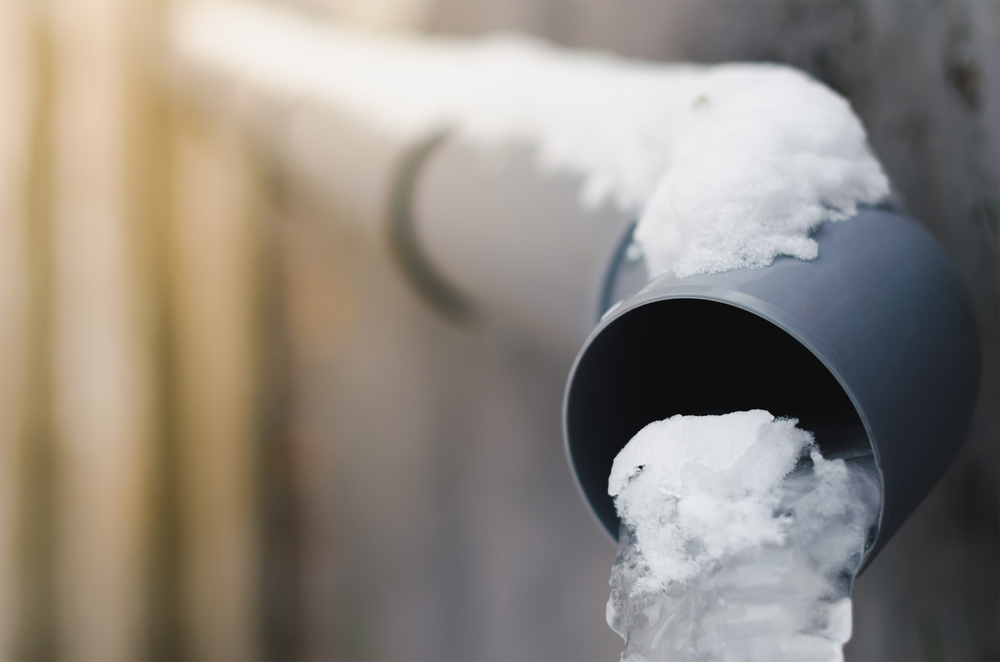This post further down on the subject of Preventing and dealing with frozen pipes is really enlightening. You should keep reading.

Cold weather can damage your plumbing, particularly by freezing pipelines. Here's just how to avoid it from happening and what to do if it does.
Intro
As temperature levels decline, the risk of icy pipelines rises, possibly bring about pricey repair services and water damage. Recognizing how to stop icy pipelines is vital for home owners in cold climates.
Avoidance Tips
Protecting vulnerable pipelines
Cover pipes in insulation sleeves or use heat tape to secure them from freezing temperatures. Concentrate on pipes in unheated or external locations of the home.
Heating techniques
Keep interior rooms adequately warmed, especially locations with plumbing. Open cupboard doors to permit cozy air to circulate around pipelines under sinks.
How to identify icy pipes
Look for reduced water flow from taps, uncommon odors or noises from pipelines, and visible frost on exposed pipelines.
Long-Term Solutions
Structural adjustments
Consider rerouting pipes far from exterior walls or unheated locations. Include added insulation to attics, basements, and crawl spaces.
Updating insulation
Purchase top notch insulation for pipes, attics, and wall surfaces. Appropriate insulation helps maintain regular temperature levels and reduces the risk of frozen pipelines.
Shielding Outdoor Pipes
Yard hose pipes and outdoor faucets
Separate and drain pipes yard hose pipes prior to winter season. Set up frost-proof spigots or cover outside faucets with insulated caps.
Recognizing Icy Pipes
What causes pipes to freeze?
Pipelines freeze when exposed to temperature levels listed below 32 ° F (0 ° C) for prolonged periods. As water inside the pipelines freezes, it broadens, taxing the pipeline wall surfaces and possibly creating them to break.
Dangers and problems
Frozen pipes can result in water system disruptions, residential property damage, and pricey repair services. Ruptured pipelines can flooding homes and trigger comprehensive structural damage.
Indications of Frozen Pipeline
Determining frozen pipes early can avoid them from breaking.
What to Do If Your Pipelines Freeze
Immediate actions to take
If you think icy pipelines, maintain taps open up to relieve stress as the ice thaws. Use a hairdryer or towels soaked in warm water to thaw pipes slowly.
Final thought
Protecting against icy pipelines calls for proactive procedures and fast actions. By recognizing the reasons, indications, and preventive measures, house owners can secure their pipes throughout cold weather.
Helpful Tips to Prevent Frozen Pipes this Winter
UNDERSTANDING THE BASICS: WHY PIPES FREEZE AND WHY IT’S A PROBLEM
Water freezing inside pipes is common during the winter months, but understanding why pipes freeze, and the potential problems it can cause is crucial in preventing such incidents. This section will delve into the basics of why pipes freeze and the associated problems that may arise.
THE SCIENCE BEHIND FROZEN PIPES
When water reaches freezing temperatures, it undergoes a physical transformation and solidifies into ice. This expansion of water as it freezes is the primary reason pipes can burst. As the water inside the pipe freezes, it expands, creating immense pressure on the walls. If the pressure becomes too great, the pipe can crack or rupture, leading to leaks and water damage.
FACTORS THAT CONTRIBUTE TO PIPE FREEZING
Low Temperatures: Extremely cold weather, especially below freezing, increases the risk of pipes freezing. Uninsulated or Poorly Insulated Pipes: Pipes located in unheated areas, such as basements, crawl spaces, or attics, are more prone to freezing. Insufficient insulation or lack of insulation altogether exacerbates the problem. Exterior Wall Exposure: Pipes running along exterior walls are susceptible to freezing as they encounter colder temperatures outside. Lack of Heating or Temperature Regulation: Inadequate heating or inconsistent temperature control in your home can contribute to frozen pipes. PROBLEMS CAUSED BY FROZEN PIPES
- Pipe Bursting: As mentioned earlier, the expansion of water as it freezes can cause pipes to burst, resulting in significant water damage.
- Water Damage: When pipes burst, it can lead to flooding and water damage to your property, including walls, ceilings, flooring, and personal belongings.
- Structural Damage: Prolonged exposure to water from burst pipes can compromise the structural integrity of your home, leading to costly repairs.
- Mold and Mildew Growth: Excess moisture from water damage can create a favorable environment for mold and mildew growth, posing health risks to occupants.
- Disrupted Water Supply: Frozen pipes can also result in a complete or partial loss of water supply until the issue is resolved.
WHY CERTAIN PIPES ARE MORE PRONE TO FREEZING
- Location: Pipes located in unheated or poorly insulated areas, such as basements, crawl spaces, attics, or exterior walls, are at higher risk of freezing.
- Exterior Pipes: Outdoor pipes, such as those used for irrigation or exposed plumbing, are particularly vulnerable to freezing as they are directly exposed to the elements.
- Supply Lines: Pipes that carry water from the main water supply into your home, including the main water line, are critical to protect as freezing in these lines can affect your entire plumbing system.
- Underground Pipes: Pipes buried underground, such as those connected to sprinkler systems or outdoor faucets, can be susceptible to freezing if not properly insulated.
https://busybusy.com/blog/helpful-tips-to-prevent-frozen-pipes-this-winter/

I recently found that content on How to prepare your home plumbing for winter weather when doing a lookup on the search engines. In case you appreciated our blog posting if you please remember to share it. I enjoy your readership.
Set Up An Appointment